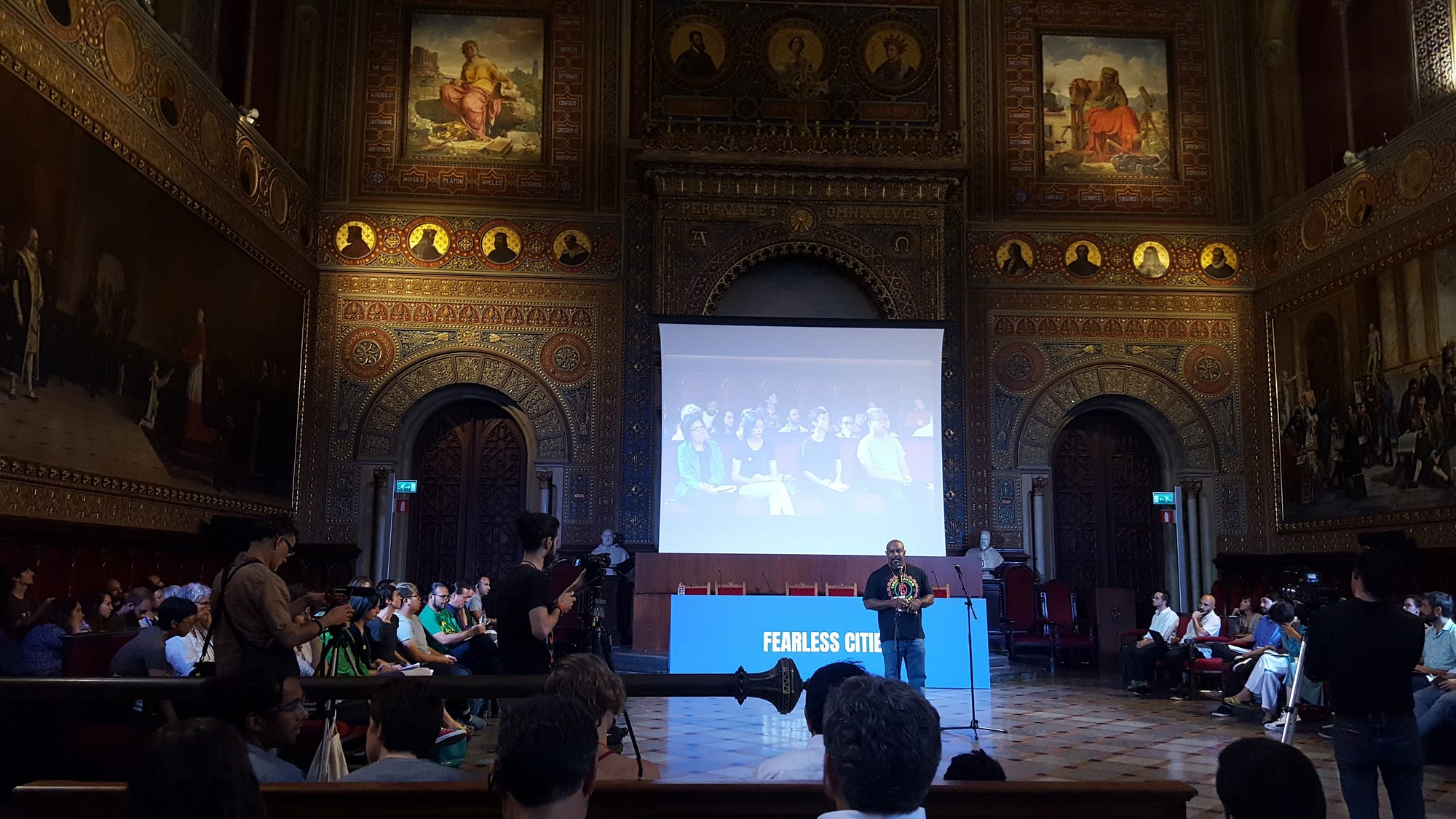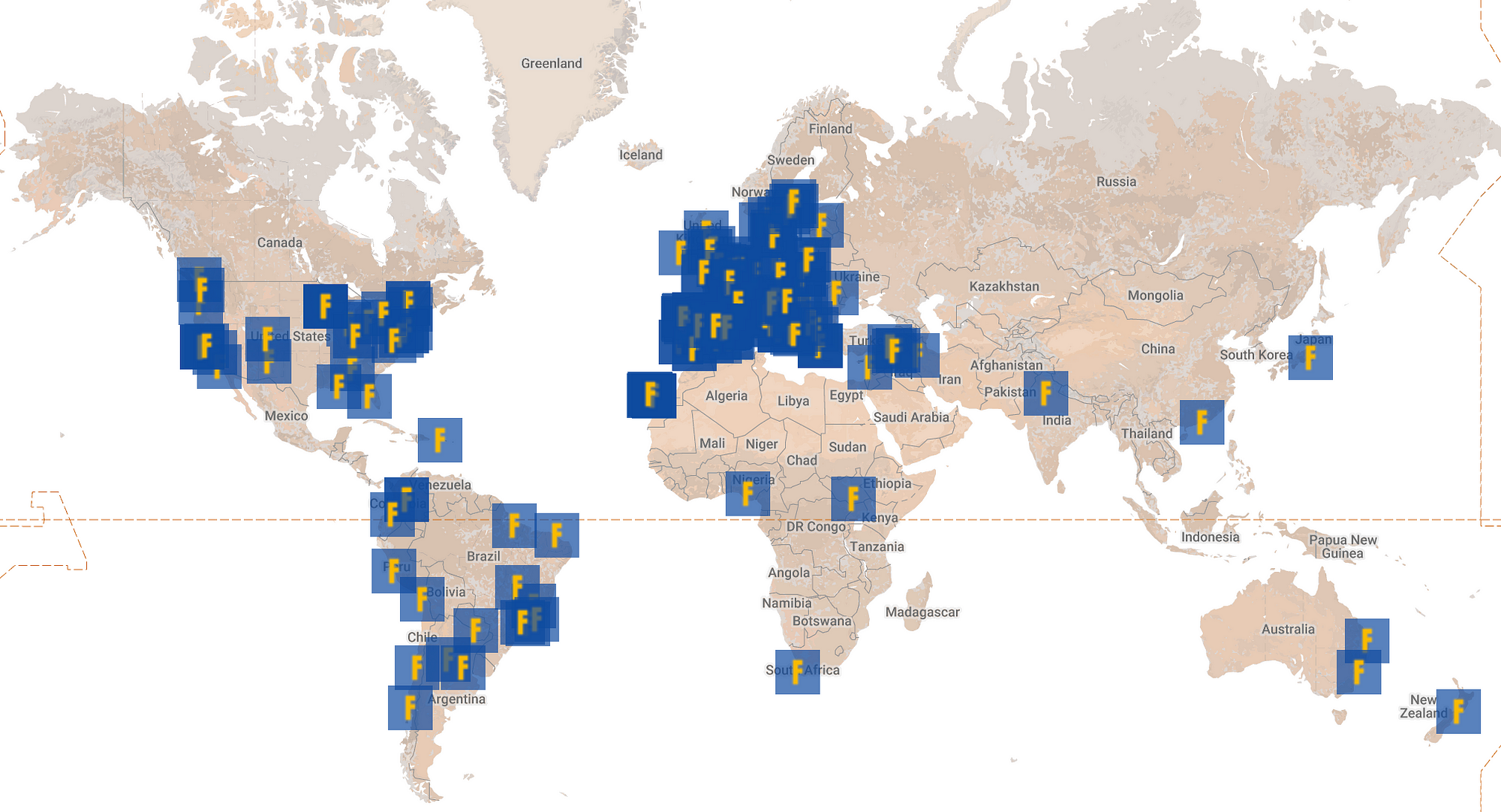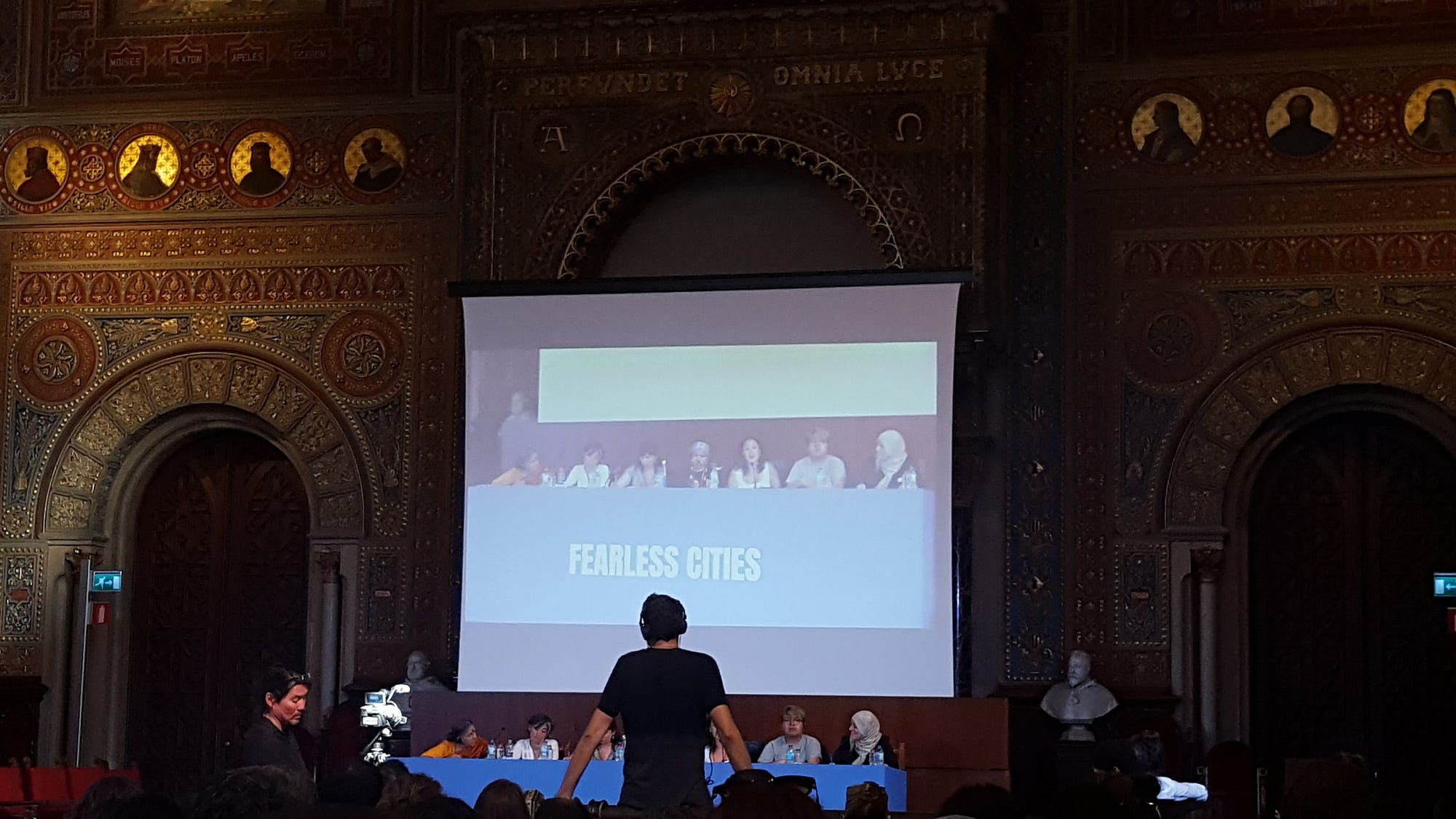Sanctuary and Refuge Cities
On Sunday morning, we joined a panel on Sanctuary and Refuge Cities.Speakers included city officials from Barcelona, NYC, Berlin, Kilkis (Greece), and Paris. Some highlights:
Daniel Gutierrez from Interventionistische Linke in Berlin explained how they created an anonymous health card so migrants can access services without fear of deportation. The same is happening in Barcelona and parts of France. Ignasi Calvó explained that the Barcelona ID is a municipal (not national) register of citizens, so they can bypass the racist laws of the Spanish state, but it still carries state validity, conferring automatic rights to anyone carrying it in the EU. He warned though, “If you’re going to use civil disobedience, you have to ensure the consequence will be on the city, not on the migrant.”
Each of the speakers reiterated the same simple point: that everyone should have access to the same rights. They argued against categorical distinctions between migrants, refugees, and other residents, as these categories create exclusion.
Amélie Canonne from Emmaus International explained how the state fuels radicalisation: “Repression creates radicalisation, both within migrant communities and in the activists working in solidarity with them. In EU, food distribution is banned, activists are arrested, trialled, radicalised.”
Comments from the audience revealed the huge intelligence in the room. For instance, one commenter shared their concerns about the elephant in the room: the question of race. “This has been a colourblind discourse, forgetting the racial aspect, treating migrants as foreigners rather than people of colour. In the US, white nationalism is one of the main drivers working against migrants.” For more on this, see my recent article on white nationalist militias resisting migration from Latin America.
A city councillor from Philadelphia agreed, explaining how systemic bias is compounded against people with intersecting identities, not just “people of colour”, but “low income, migrant, people of colour.”
A Lebanese participant shared some broader context: “We have been receiving refugees for 60 years, maybe 2 million of them. We have a lot to say about the experience! Are these European cities connecting with the history of refugees in Lebanon? We have made so many failures, and success stories too. Many European cities are coming at this for the first time, learn from us!”
It was inspiring to hear so many cities taking radical steps to resist the racist policies imposed at the national level. See my full notes from that session here.

For the closing plenary, Kali Akuno shared razor-sharp analysis from their experience in Jackson, Mississippi.
“In Jackson we talk about the “Syriza trap” — thinking that our leftist forces can manage the contradictions of capitalism. Thinking we can transform capitalism without transforming society. Where has that ever happened? We need to transform society from the bottom up in a participatory way.”
They reiterated “proximity”, a theme woven throughout the conference:
“Direct contact with your neighbour. Find out their interests, hopes, desires, fears, then organise for what you want, and to not be subject to those fears. You will have to confront racism, sexism, xenophobia: you can overcome that at the local level and create a practice to open your neighbourhood to new people.”

The map of participants shows the global extent of this emerging movement
We then heard updates from delegates from around the world. The UK delegate received enthusiastic applause throughout their short speech:
“Use political office as a resource to support the transformation from below. We’ve learned the lessons from feminism, we change the order when we refuse to participate.”

A panel discussion with no white men. How has this never happened before?
Finally, at the end of the day we enjoyed a one last panel — a furious, joyful, incendiary lineup of speakers. I took fairly comprehensive notes, which you can read here.
Yayo Herrero was one of the most incredible speakers I’ve ever seen. Their transformation recipe is worth quoting in full (that is, my transcription of the English translation of the recipe):
“Acknowledge the very clear reality: that material reduction is not catastrophe. It is a catastrophe to not address this with equity and justice.
“We are obliged to think about freedom and a framework of rights that is not just individual but has a relational sphere.
“We need to imagine an ecologist feminist alternative that is anchored in the land, and in our bodies. Put life and sustainability as a political and economic priority. Expel markets as the centre of the political logic. Challenge the perverse logic that if we don’t keep on feeding this exploitive system we won’t grow wellbeing.
“We need a different way of science and technology. We need to expel the part of science that is based on fantasy, promoting things that are not possible, or only possible for a few. Put science in the service of life.
“We need social organisation where men and women and institutions are co-responsible for care. Life must be cared for, it’s not just a job for women.
“We need alliances that allow us to organise a sabotage to this historic plan. Feminists, entrepreneurs, ecologists, trade unions… build a complicated diverse alliance of majorities.”